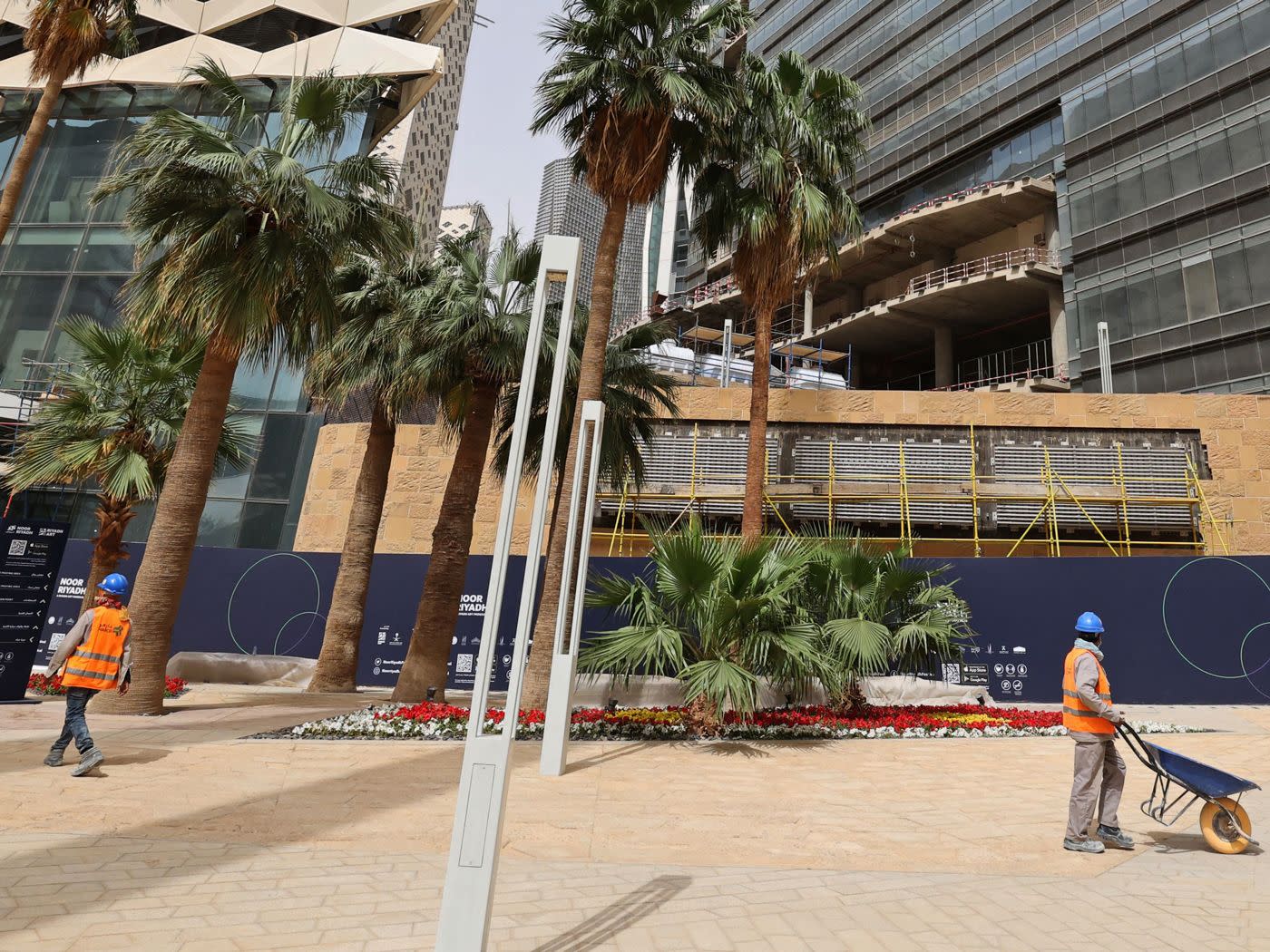Retirement for 45-Year-Olds May Vanish in Saudi Pension Reform

(Bloomberg) — Saudi Arabia is considering revamping the kingdom’s pension system to require citizens to work longer and contribute more, another hit to living standards that could undermine public support for Crown Prince Mohammed bin Salman’s efforts to reshape the oil-reliant economy.
The government — faced with an estimated actuarial gap of 800 billion riyals ($213 billion) at the state-controlled pension fund — is weighing proposals to increase the retirement age, according to three people familiar with the matter, who asked not to be identified to discuss confidential deliberations. It could also require workers to contribute more of their salaries to the General Organization for Social Insurance, or GOSI, which manages both public and private sector pensions, the people said.
A final decision on the details of the changes and whether to implement them has not yet been made, the people said.
Saudi officials have warned the current system is unsustainable. That’s a quandary pension programs the world over have faced as people have lived longer. China plans to raise its retirement age gradually over the coming years as it faces a declining birthrate. In Russia, a 2018 proposal to raise the retirement age touched off protests and exposed cracks in Vladimir Putin’s base before eventually becoming law.
The kingdom’s dilemma has a decidedly Saudi twist, though.
The average Saudi life expectancy is 75 years, and the official retirement age is around 60, including a five-year hike for women in 2019. But about a third of employees take an early retirement option after working just 20 or 25 years. That compares to an average retirement age of 64.3 years for men and 63.5 years for women in member countries of the Organization for Economic Cooperation and Development.
Saudi Austerity Angst Wants to Be Heard Even If No One Listens
Any changes to the rules, however, could be controversial domestically. Prince Mohammed, the kingdom’s de facto ruler, has already upended decades of expectation that the state would use its oil wealth to provide citizens with benefits like cheap gasoline and power, plentiful government jobs and university scholarships.
As part of his plan to end the economy’s reliance on oil and fill a budget gap left by lower crude prices, he’s remodeled the social contract in the world’s largest crude exporter by cutting subsidies, introducing taxes and criticizing a bloated public sector. Many low- and middle-income Saudis are struggling to adjust, and the coronavirus pandemic has only accelerated the pace of change by straining government finances and highlighting the urgency of economic diversification.
Two Million Saudis Lose Cash Aid When They Can Least Afford It
When asked about the proposed changes to the pension system, GOSI said the merger of the public and private sector pension and insurance funds last month “will not affect the insurance entitlements of the insurance clients, the pensions for the retirement clients, or the percentages or supply of subscriptions for each fund, nor its operations or transactions.”
But Nader Al Wahibi, the assistant governor at GOSI, recently argued on state television that early retirement and longer life spans were endangering the fund’s future. The practice of retiring workers after 20 years of service was temporarily frozen after the fund merged with the Public Pension Agency last month.
“The people that are retiring early now are going to drain all of the money in the fund,” Al Wahibi said. “They’re living longer, and the money isn’t enough, even if we achieved astronomical investment returns.” Workers now pay 9% of their salaries into the pension fund.
The Ministry of Finance and the government’s Center for International Communication didn’t immediately respond to requests for comment.
Al Wahibi’s pointed remarks sparked negative reactions from some well-known Saudis — a rare occurrence since Prince Mohammed led a crackdown that’s chilled domestic criticism.
“Even if we agreed that this is the truth, it shouldn’t be said in this dry, tough language,” novelist Mohammed Al Rotayyan said in a post on Twitter. “People aren’t numbers in a rigid accounting process.”
(Updates with details about other countries facing similar problems and additional context in fourth paragraph.)
More stories like this are available on bloomberg.com
Subscribe now to stay ahead with the most trusted business news source.
©2021 Bloomberg L.P.




